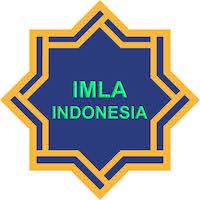Balaghah Learning Innovation Based on Problem-Based Learning
DOI:
https://doi.org/10.18592/jams.v12i1.15251Keywords:
balaghah, innovation, problem-based learning, higher education, multiple choice questionsAbstract
This article explores the implementation of Problem-Based Learning (PBL) in enhancing the teaching of balaghah (Arabic rhetoric) among undergraduate students. The study examines how PBL encourages active student engagement and fosters critical thinking through collaborative tasks, particularly in the design of multiple-choice questions. By shifting students from passive receivers of information to active creators of knowledge, PBL facilitates deeper comprehension of balaghah concepts. The research findings align with previous studies, demonstrating that PBL not only improves understanding but also increases retention of complex rhetorical principles. The article also discusses challenges encountered, such as varying levels of student comprehension, and proposes solutions like incorporating cooperative learning strategies. The results highlight the importance of pedagogical innovation, showing that PBL offers an effective approach to modernizing the teaching of classical disciplines such as balaghah.References
Ainin, Moh. (2017). Efektifitas Penggunaan Pendekatan Pembelajaran Berbasis Masalah (problem Based Learning) Dalam Pembelajaran Matakuliah Metodologi Penelitian Bahasa Arab. Bahasa dan Seni: Jurnal Bahasa, Sastra, Seni dan Pengajarannya, 45(2), 197–207. https://doi.org/10.17977/um015v45i22017p197
Anggraini, R. D., Hutapea, N. M., & Amalina, A. (2021). Perangkat Pembelajaran Matematika berbasis Problem Based Learning untuk Materi Sistem Persamaan Linear Tiga Variabel (Sebuah Studi Pengembangan). Juring (Journal for Research in Mathematics Learning), 4(4), 339–350.
Audry, A. F., Hardiansyah, H., & Rezeki, A. (2022). Pengembangan E-LKPD Berbasis Problem Based Learning Pada Materi Sistem Gerak Kelas XI. JUPEIS: Jurnal Pendidikan Dan Ilmu Sosial, 1(3), 128–139.
Ayu, D. (2023). Analisis faktor kesulitan belajar balaghah mahasiswa pendidikan bahasa Arab kelas A 2021 Universitas Islam Negeri Maulana Malik Ibrahim Malang. Maliki Interdisciplinary Journal, 1(4), 371–375.
A’yun, D. Q. (2019). Pencapaian hasil belajar melalui model problem-based learning. Tajdidukasi: Jurnal Penelitian Dan Kajian Pendidikan Islam, 9(2), 96.
Barrows, H. S., Tamblyn, R. M., & others. (1980). Problem-based learning: An approach to medical education (Vol. 1). Springer Publishing Company.
Fitriana, M. F. (2021). Penerapan model pembelajaran problem based learning untuk meningkatkan hasil belajar mata pelajaran akuntansi keuangan pada siswa XII Akuntansi SMKN 44 Jakarta. Jurnal Penelitian, Pendidikan Dan Pengajaran: JPPP, 2(1), 51–60.
Hertina, D., M, N., Gaspersz, V., Nainggolan, E. T. A., Rosmiati, R., Sanulita, H., Suhirman, L., H, L. P., Prisusanti, R. D., Ahmad, A., & Ferdinan, F. (2024). Metode Pembelajaran Inovatif Era Digital: Teori dan Penerapan. PT. Green Pustaka Indonesia.
Indraswari, R. (2014). Penerapan Paduan Pembelajaran Problem Based Learning (pbl) Dan Kooperatif Type Student Teams Achievement Division (stad) Untuk Meningkatkan Keterampilan Membaca Bahasa Arab. Lisanul Arab: Journal of Arabic Learning and Teaching, 3(1), Article 1. https://doi.org/10.15294/la.v3i1.4135
Kurniasih, D. (2021). Implementasi Model Pembelajaran Contextual Teaching And Learning (CTL) Dalam Pelajaran IPA Di Sekolah Dasar. Social, Humanities, and Educational Studies (SHES): Conference Series, 3(4), 285–293.
Muradi, A. (2013). Tujuan pembelajaran bahasa asing (Arab) di Indonesia. Jurnal Al-Maqayis, 1(1).
Murni, A., Anggraini, R., & others. (2018). The Effectiveness of Learning Instruments on the Topic of the Set Using Problem-Based Learning Model at Islamic Junior High School in Pekanbaru. Journal of Physics: Conference Series, 1088(1), 012050.
Nugraheni, N., Sari, E. F., Sismulyasih, N., & Ansori, I. (2019). Pembuatan Aplikasi Soal Berbasis Android Di SD Labschool Unnes. Rekayasa: Jurnal Penerapan Teknologi Dan Pembelajaran, 16(2), 149–154.
Putri, M. N. (n.d.). The Application of Problem Based Learning Model To Increase Students Achievement In Indonesian Subject. Social, Humanities, and Educational Studies (SHES): Conference Series, 3(4), 336–340.
Rafsanjani, H., Zubaidillah, Muh. H., & Nuruddaroini, M. A. S. (2022). Problematika Mahasiswa dalam Manajemen Skill Berbahasa Arab pada Perguruan Tinggi di Kalimantan. Jurnal Basicedu, 6(3), 5166–5180. https://doi.org/10.31004/basicedu.v6i3.3072
Rois, I. N. (2021). PEMANFAATAN E-LEARNING SEBAGAI MEDIA PEMBELAJARAN PADA MATA KULIAH BALAGHAH AT-TATHBIQIYYAH DI STAI MASJID SYUHADA YOGYAKARTA. Ihtimam : Jurnal Pendidikan Bahasa Arab, 4(1), 20–30. https://doi.org/10.36668/jih.v4i1.204
Shofiyah, N., & Wulandari, F. E. (2018). Model problem based learning (PBL) dalam melatih scientific reasoning siswa. JPPIPA (Jurnal Penelitian Pendidikan IPA), 3(1), 33–38.
Sirod, M. (2021). Implementasi Inquiry-Based Learning Di Masa Pandemi (studi Kasus Di Aba St. Pignatelli Surakarta). Media Akuntansi, 33(02), 123–149.
Taufiqurrochman, R. (2011). RESISTEMATISASI DAN RESTRUKTURALISASI ILMU MA’ANI DALAM DESAIN PEMBELAJARAN ILMU BALAGHAH. LiNGUA: Jurnal Ilmu Bahasa dan Sastra, 5(1). https://doi.org/10.18860/ling.v5i1.615
Downloads
Published
Issue
Section
License
Copyright (c) 2025 Rochimul Umam, Agung Setiyawan

This work is licensed under a Creative Commons Attribution 4.0 International License.
Authors who publish with this journal agree to the following terms:
- Authors retain copyright and grant the journal right of first publication with the work simultaneously licensed under a Creative Commons Attribution License that allows others to share the work with an acknowledgement of the work's authorship and initial publication in this journal.
- Authors are able to enter into separate, additional contractual arrangements for the non-exclusive distribution of the journal's published version of the work (e.g., post it to an institutional repository or publish it in a book), with an acknowledgement of its initial publication in this journal.
- Authors are permitted and encouraged to post their work online (e.g., in institutional repositories or on their website) after the submission process, as it can lead to productive exchanges, as well as earlier and greater citation of published work.






